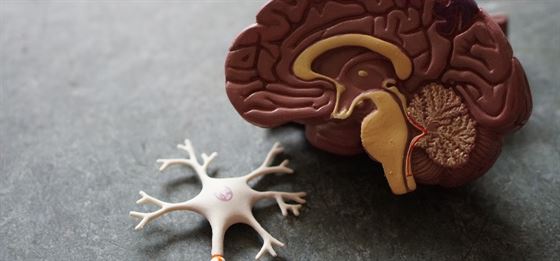
Moving From Disordered Eating To a Healthy Lifestyle

Struggling with disordered eating can be a difficult and isolating experience. Whether you are dealing with anorexia, bulimia, binge-eating disorder or any other form of disordered eating, the path towards recovery can be challenging and overwhelming. It takes courage and determination to confront these struggles and move towards a healthier lifestyle.
With the right support, resources and tools, it is possible to manage disordered eating and to find a path towards a healthier, happier life.
Understand Your Relationship With Food
It is estimated every year, 3.3 million healthy life years are wasted due to eating disorders worldwide. Many people who struggle with disordered eating have an unhealthy attitude towards food, associating it with guilt, shame or anxiety.
Individuals with eating disorders experience a diminished quality of life, incur annual healthcare expenses that are 48% higher than those of the general population, are more likely to have mental health comorbidities that result in a 48% decrease in annual earnings, have fewer offspring and face greater risks of adverse pregnancy and neonatal outcomes. So, a dangerous pattern of behavior to have.
6 Ways To Move From Disordered Eating To a Healthy Lifestyle
If you are trying to make the switch from disordered eating to healthy living, it’s important to get in touch with your feelings around food and start viewing it as a source of nourishment rather than shame or guilt. Here are six tips that can help you manage your patterns: .
Create A Meal Plan
Creating a meal plan can help you establish a regular eating schedule and ensure you are getting the nutrients your body needs to thrive:
- Include a variety of foods from all food groups in your diet.
- Avoid processed, fried and sugary foods.
- Include foods which are high in fiber, such as fruits and vegetables.
- Avoid skipping meals and try to eat at regular intervals throughout the day.
- Drink plenty of fluids, especially water.
Listen to Your Body
It's important to learn to pay attention to your body's hunger and fullness signals. This can help you establish a healthy relationship with food and avoid overeating or undereating. Some things to keep in mind are:
- Eating when you are hungry and stopping when you are full
- Eating slowly and mindfully
- Checking in with yourself while you are eating and notice how your body feels
- Avoiding eating when you are feeling stressed, anxious or emotional
Give Up on Fad Diets
Fad diets are not only ineffective in the long term, but they can also be damaging to your mental health. Restrictive diets can lead to disordered eating behaviors and nutrient deficiencies. When transitioning from disordered eating to a healthy lifestyle, you must work to include all 6 essential nutrients which include:
- Proteins which play a crucial role in tissue formation, cell repair and the production of hormones and enzymes. It is essential for developing strong muscles and maintaining a healthy immune system.
- Carbohydrates provide the body with a quick source of energy and are important structural components for cell formation.
- Fats serve as a stored source of energy, aid in the structure of cells and act as signaling molecules for proper cellular communication. It also insulates vital organs and helps to regulate body temperature.
- Vitamins regulate body processes and promote the normal function of bodily systems.
- Minerals are necessary for proper cellular function, regulate body processes and comprise body tissues.
- And last, and most important to remember, water is essential for transporting vital nutrients to all body parts, eliminating waste products and helping to regulate body temperature.
Recognize Your Feelings Without Food
Food is a source of nourishment, but it can also be used as an emotional crutch. It's important to recognize the underlying emotions that often lead to disordered eating, such as boredom, stress or anxiety. Finding healthier ways to manage these emotions can help you break the cycle of disordered eating.
Focus On Self-Care
There are plenty of activities which can help you relax and take care of yourself without relying on food for comfort or relaxation. For instance, taking a hot bath, going for a walk in nature, practicing yoga or meditation or reading an interesting book - these are all great ways to take care of yourself without turning to food for comfort or stress relief. Exercise can also be an excellent way to improve your mood and relieve stress.
Seek Professional Help
A mental health professional can provide guidance and support as you work through difficult emotions associated with your relationship with food and develop healthier coping mechanisms for dealing with stress and anxiety. They can also help you create personalized strategies for managing cravings and overcoming triggers so you can stay on track with developing a healthier lifestyle overall.
If you are struggling with disordered eating habits, know that there is hope! With dedication and effort, it is possible to move away from unhealthy patterns into more positive ones that lead towards better mental health overall. With the right help and support, you can take back control of your life and start to enjoy food in a healthy way.
Articles
Build your awareness and get inspired with our researched articles on how you can strengthen your well-being
Popular Topics
An OTP has been sent to the email address
provided.
Please check your Inbox and Spam folders.

What Would You Like to Speak with a Specialist About?
Mental Fitness Journey starts Now!
Chearful Connects you with Top-tier Qualified Wellness specialists for the Price of a cup of Coffee!

Next Steps
- A Client Team member will reach out to you to schedule a session with the most suitable specialist.
- You will receive an email with a 10% Discount Code* for your 1st session.
- We invite you to Explore the Platform & Sign Up today! *Upto a maximum of $10 discount on a session purchased




 1773 Read
1773 Read




.jpg)











.png)

.jpg)

.jpg)




.jpg)

































.jpg)

.jpg)




























